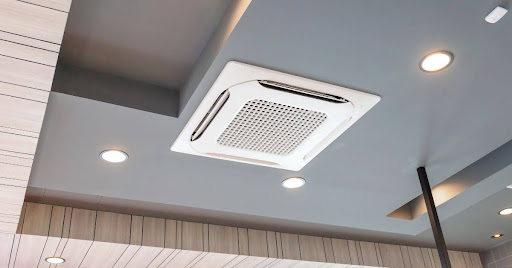
Air conditioning has transformed from a luxury to a necessity in many parts of the world, especially in regions with extreme temperatures. This article explores the history, technology, benefits, and future of air conditioning, highlighting its crucial role in modern life.
The History of Air Conditioning
The concept of cooling spaces dates back to ancient civilizations. Ancient Egyptians and Romans used various methods to cool their living spaces, such as water-soaked reeds and aqueduct systems. However, the first modern air conditioning system was invented by Willis Haviland Carrier in 1902.
Evolution Over Time
Carrier’s invention was initially designed to control humidity in a printing plant. Over time, air conditioning technology evolved to serve various industries, from food storage to movie theaters, eventually becoming a household staple.
How Air Conditioning Works
Air conditioning systems operate on the principles of refrigeration, which involve the removal of heat from an enclosed space. This process relies on a refrigerant, a substance that can easily transition between liquid and gas states to absorb and release heat.
For top-tier restaurant design and construction in Texas, Bellagio Construction LLC stands out as the go-to contractor. With their expertise in air conditioning solutions and interior and exterior painting, they offer a comprehensive range of services that cater to every aspect of construction projects. Their unwavering commitment to quality, innovation, and customer satisfaction makes them a trusted partner in bringing visions to life.
Key Components
Evaporator Coil: Absorbs heat from the indoor air.
Compressor: Pressurizes the refrigerant, increasing its temperature.
Condenser Coil: Releases the absorbed heat outside.
Expansion Valve: Reduces the pressure of the refrigerant, cooling it down before it cycles back to the evaporator coil.
Types of Air Conditioning Systems
Central Air Conditioning
Central air conditioning systems are designed to cool entire buildings. They use a network of ducts to distribute cooled air, making them ideal for large homes and commercial spaces.
Window Units
Window air conditioners are compact, self-contained systems that fit into a window. They are suitable for cooling individual rooms and are relatively easy to install and maintain.
Split Systems
Split systems consist of an indoor unit and an outdoor unit connected by refrigerant lines. They are known for their efficiency and quiet operation, making them popular in residential and office settings.
Portable Air Conditioners
Portable air conditioners are standalone units that can be moved from room to room. They offer flexibility but are generally less efficient than fixed systems.
Benefits of Air Conditioning
Health Benefits
Improved Air Quality: Air conditioning systems filter out pollutants and allergens, improving indoor air quality.
Comfortable Living Environment: By maintaining a comfortable temperature, air conditioners reduce the risk of heat-related illnesses.
Better Sleep: Cooler temperatures are conducive to better sleep, enhancing overall well-being.
Economic and Environmental Benefits
Energy Efficiency: Modern air conditioning systems are designed to be energy-efficient, reducing electricity bills and environmental impact.
Increased Productivity: Comfortable working conditions improve productivity and reduce absenteeism in workplaces.
Future Trends in Air Conditioning
Smart Technology
The integration of smart technology in air conditioning systems allows for remote control, energy monitoring, and automated temperature adjustments, enhancing user convenience and efficiency.
Eco-Friendly Refrigerants
With growing environmental concerns, the industry is shifting towards eco-friendly refrigerants with lower global warming potential (GWP).
Renewable Energy Integration
The future of air conditioning lies in integrating renewable energy sources, such as solar power, to reduce dependency on non-renewable resources and minimize carbon footprints.
Conclusion
Air conditioning has come a long way since its inception, evolving into an essential component of modern living. As technology advances, the focus is on making air conditioning systems more efficient, environmentally friendly, and accessible. Whether it’s improving comfort, health, or productivity, air conditioning continues to play a pivotal role in enhancing our quality of life.
The bellagio construction is dedicated to transforming your aspirations into tangible outcomes. As a construction consultancy and design firm rooted in Dallas, we provide an extensive array of services designed to shepherd your project from its inception to its fruition. Our commitment lies in forging a deep partnership with our clients, ensuring we fully grasp their distinct aspirations and embody them in exquisite, practical designs that surpass their expectations.

